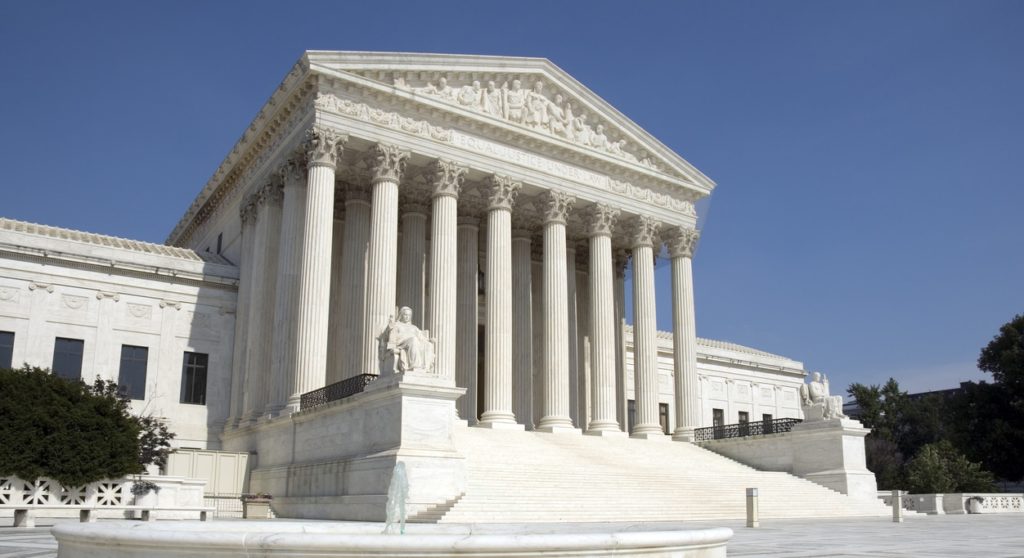In a June False Claims Act (FCA) whistleblower case, Supreme Court Justice Clarence Thomas wrote a dissent containing language which questioned the constitutionality of the FCA’s whistleblower provisions. In the following months, multiple motions have been filed which pick up on Thomas’ line of reasoning and pose an existential threat to the United States’ most important and effective anti-fraud law.
In the June Supreme Court case, United States, ex rel. Polansky v. Executive Health Resources, the Court issued an 8-1 ruling granting the U.S. Department of Justice (DOJ) the authority to dismiss qui tam whistleblower lawsuits in cases in which it chose not to intervene.
Under the FCA’s qui tam provisions, whistleblowers with knowledge of fraud are able to bring a lawsuit against the fraudster on behalf of the U.S. government. The DOJ is able to intervene and take over the lawsuit, but if it chooses not to intervene the whistleblower may continue to pursue the case of the government’s behalf. The Polansky ruling clarifies that the DOJ has the authority to intervene at any point during a qui tam lawsuit and then dismiss the suit, even if it had previously chosen to not intervene.
While this ruling was seen as damaging to the FCA, whistleblower advocates were even more alarmed by language in the dissent issued by Thomas who wrote that the FCA has “long inhabited something of a constitutional twilight zone.”
“There are substantial arguments that the qui tam device is inconsistent with Article II and that private relators may not represent the interests of the United States in litigation,” stated Thomas suggesting that qui tam suits violate Article II of the Constitution which vests the power to litigate on behalf of the government to the executive branch.
Thomas states that it “appears to follow that Congress cannot authorize a private relator to wield executive authority to represent the United States’ interests in civil litigation.” Justice Brett Kavanaugh, in a concurrence joined by Justice Amy Coney Barrett, agreed with Thomas, writing that “[t]he court should consider the competing arguments on the Article II issue in an appropriate case.”
“The position of Justice Thomas’s dissent is both dangerous and reckless,” said whistleblower attorney David Colapinto of Kohn, Kohn & Colapinto at the time of the decision. “This is a green light to every government contractor accused of fraud to argue that a whistleblower’s False Claims Act lawsuit in a declined case is unconstitutional despite the statute that says that whistleblowers can pursue these claims even if the government declines to intervene.”
So far, Colapinto’s warning of a “green light” appears to be prescient as at least two challenges have been filed in recent months questioning the constitutionality of the FCA’s qui tam provisions along the lines outlined by Thomas.
In August, counsel for orthopedic implant maker Exactech filed a brief with the U.S. District Court for the Northern District of Alabama requesting that a qui tam whistleblower suit against the company be dismissed. Exactech is accused of violating the FCA by providing purportedly defective knee implants.
Citing extensively to Thomas’ dissent, the Exactech brief argues that the qui tam suit is unconstitutional because it violates Article II.
A similar argument is outlined in a filing with the U.S. District Court for the Northern District of Texas submitted by Planned Parenthood on September 1. Planned Parenthood is faced with a qui tam lawsuit filed by an anonymous anti-abortion activist accusing the organization of defrauding Medicaid.
Citing to the Thomas dissent, Planned Parenthood seeks to have the lawsuit dismissed on the grounds that the qui tam provisions of the FCA violate Article II of the Constitution.
“Declaring whistleblower rights under the False Claims Act unconstitutional would do great damage to a law that has been on the books for 37 years and that has helped the United States recover over $70 billion from government contractors that have defrauded taxpayers during that time,” says Colapinto.
Further Reading:
SCOTUS Rules to Not Curb DOJ’s Dismissals of Qui Tam Whistleblower Suits
Planned Parenthood seeks to overturn US whistleblower fraud law
Supreme Court dissent sparks new threat for False Claims Act suits
